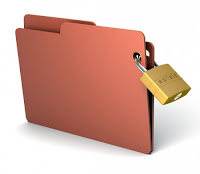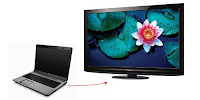Shopping online is becoming increasingly popular with consumers of all
ages. With fast shipping and websites selling virtually everything,
online shopping is an attractive alternative to the hassle of visiting
multiple stores.
However, eCommerce safety is a huge issue, and many shoppers are unaware
of how to ensure that their online transactions are safe, secure and
private. Fortunately, there are a number of simple signs to look out for
and changes you can implement to make purchasing items on the Web
considerably safer.
Computer/Network Tips & Tricks, ICT latest and Old useful info, Network/Computer Security Tips & Tricks, General Security/Safety Tips
Monday, September 30, 2013
Disable USB ports on Windows PC via Registry
With this trick, you can disable access to your USB(Universal Serial
Bus) ports in your Windows based PC to prevent people from taking out
data from your personal computer without permission or spreading viruses
through the use of USB(pen and flash) drives.
To use this trick to disable USB ports, follow the steps given below:-

Try it yourself to make your PC invulnerable from data theft and malware which spread through USB ports. This works on Windows XP, Windows Vista, Windows 7 and Windows 8.
Note: This trick also disables access to your USB connected peripheral devices. So, do not use it if you have USB connected keyboard and mouse.
To use this trick to disable USB ports, follow the steps given below:-
- Click on Start.
- Click on Run. If you cannot find RUN, type it in the search box.
- Type "regedit" without quotes. This will launch the Registry Editor.
- Navigate to HKEY_LOCAL_MACHINE\SYSTEM\CurrentControlSet\Services\usbstor.
- In the work area, double click on Start.
- In the Value Data box, enter 4.
- Click on OK.
- Close Registry Editor and refresh your desktop.
- To re-enable access to your USB ports, enter 3 in the Value Data box in Step 6.

Try it yourself to make your PC invulnerable from data theft and malware which spread through USB ports. This works on Windows XP, Windows Vista, Windows 7 and Windows 8.
Note: This trick also disables access to your USB connected peripheral devices. So, do not use it if you have USB connected keyboard and mouse.
Tuesday, September 17, 2013
PC Security Tips : Make Computer Secure
Here are some tips which will enable you to make your PC more secure.
Anti-virus
1. Never, ever turn off the resident protection of your antivirus even if it decreases performance. Upgrade if necessary.
2. Keep your virus definitions up-to-date. Use the automatic update feature of your anti-virus and try not to ignore the "Do you want to update now" message however often it might pop up.
Anti-virus
1. Never, ever turn off the resident protection of your antivirus even if it decreases performance. Upgrade if necessary.
2. Keep your virus definitions up-to-date. Use the automatic update feature of your anti-virus and try not to ignore the "Do you want to update now" message however often it might pop up.
Why a hard drive has less storage space than promised?
It has happened to most of us. We buy a new hard drive (or maybe a flash
drive) with mind boggling storage capacity only to find that it has
less space than what was mentioned on the box. Angered, we start cursing
the manufacturer and our dealer for false marketing thinking that they
should be sued for doing this. Hey, but have you ever wondered how they
continue to do this again and again without getting into legal trouble?
How to Improve Cyber Security
How to make your PC secure from all the threats in the online world and
improve cyber security? Not sure? Then read on. Here is a list of things
you should know to improve your online cyber security:-
1. Anti-virus : Probably one of the first thing which comes into one's mind when thinking about security. An anti-virus is an inevitable tool for the security of a PC. One can either choose a paid version of the anti-virus of his choice or opt for the equally effective free antivirus. Before choosing the anti-virus, it is necessary to check whether the anti-virus has resident protection or not. Resident Protection automatically detects viruses when they are loaded into the memory and takes the appropriate action thus saving a user from sitting hours in front of the PC scanning for viruses. It is important to check regularly for updates. Also do a quick scan (scanning Windows folder, Registry, Documents and recent downloads) at least once a week and a full scan at least once a month even if your PC appears fine.

1. Anti-virus : Probably one of the first thing which comes into one's mind when thinking about security. An anti-virus is an inevitable tool for the security of a PC. One can either choose a paid version of the anti-virus of his choice or opt for the equally effective free antivirus. Before choosing the anti-virus, it is necessary to check whether the anti-virus has resident protection or not. Resident Protection automatically detects viruses when they are loaded into the memory and takes the appropriate action thus saving a user from sitting hours in front of the PC scanning for viruses. It is important to check regularly for updates. Also do a quick scan (scanning Windows folder, Registry, Documents and recent downloads) at least once a week and a full scan at least once a month even if your PC appears fine.

Lock a Folder With Password Using Free Folder Protector
All of us have some files and folders that we consider private. They can
be anything from our business documents to pictures of friends and
family. These are files that we don't want other people using our
computer to know about. As Windows offers no way to protect our private
information, most of us get in awkward situations when these files are
discovered by unwanted people.
 Surely,
you can store this information in a hidden folder. The only problem is
that anyone can easily search the contents of a hidden folder using
Windows Search itself.
Surely,
you can store this information in a hidden folder. The only problem is
that anyone can easily search the contents of a hidden folder using
Windows Search itself.
The only viable solution is storing this content in a password protected folder so that only those people knowing the password of the folder can access it. There are many folder locking programs available online but the problem is that most of the good ones are paid. Even if you do manage to get a good free one, you will be looked at suspiciously when people see a folder locker in the list of your installed programs.

The only viable solution is storing this content in a password protected folder so that only those people knowing the password of the folder can access it. There are many folder locking programs available online but the problem is that most of the good ones are paid. Even if you do manage to get a good free one, you will be looked at suspiciously when people see a folder locker in the list of your installed programs.
Connect a Laptop or Desktop Computer to a TV Easily
Suppose you wish to watch a movie or share a slide-show of pictures with
your family on your PC but have a screen that leaves much to be
desired. In such a situation, you can connect your computer to a
television screen to allow your entire family to enjoy comfortably.
 There
are many ways in which you can connect your laptop/ computer to a
television. However, the overall video quality will be different for
different methods. You can choose which one to use based on the quality
or the availability of hardware. The first step is to know what
type of ports and connections your TV and computer have. If you already
know the type of ports and connections available on your hardware, you can directly jump to Step 2. If not, then the different types of ports are explained in detail below:-
There
are many ways in which you can connect your laptop/ computer to a
television. However, the overall video quality will be different for
different methods. You can choose which one to use based on the quality
or the availability of hardware. The first step is to know what
type of ports and connections your TV and computer have. If you already
know the type of ports and connections available on your hardware, you can directly jump to Step 2. If not, then the different types of ports are explained in detail below:-

Convert FAT32 to NTFS Without Formatting or Losing Data
You have a flash drive or probably an external hard drive that currently
has FAT32 file system and you want to change it to NTFS, because FAT32
does not support handling large files (over 4GB) or it is just simply
old for your taste but there is just one problem, you don't want to lose
your saved data. This article is for you then as it explains exactly
how you can achieve seamless transition from FAT to NTFS without
involving any data loss.


Subscribe to:
Comments (Atom)
